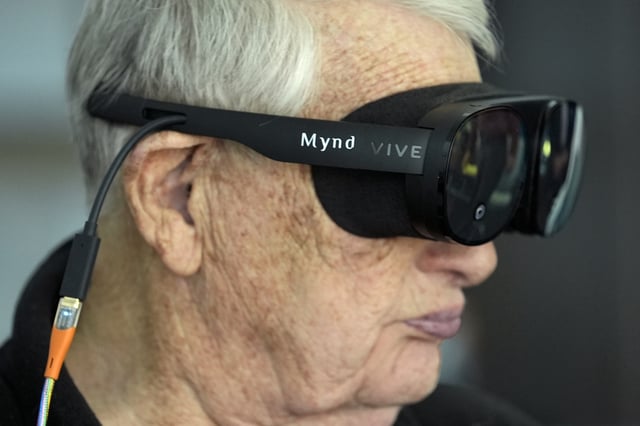Overview
- A Stanford University study involving 245 seniors aged 65 to 103 found that virtual reality (VR) improves emotions and social interactions, with 80% reporting a more positive attitude and 60% feeling less isolated.
- John Knox Village, a retirement community in Fort Lauderdale, participated in the study, offering VR experiences like flying in a fighter jet, parachuting, and interacting with pets, which residents found emotionally enriching.
- Nearly 75% of caregivers observed improved moods in residents after VR sessions, and discussions about VR experiences enhanced relationships between residents and caregivers.
- The study also identified challenges for older users, such as discomfort with headsets, leading to improvements like lighter headsets with built-in fans and less jumpy videos.
- VR is being used to help seniors with Alzheimer's and dementia at John Knox Village, sparking memories and conversations, and enhancing mobility and flexibility through interactive games.
